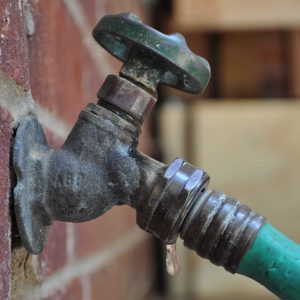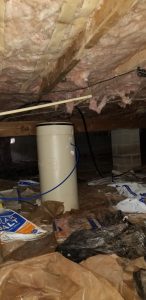
Freezing Pipes: Should I Be Worried?
Unprotected Pipes:
Unprotected pipes are susceptible to cold temperatures because water expands when it goes from liquid to solid form. Ice blockage becomes more likely when outside temperatures drop to below freezing. A cold wind reaching unprotected pipes quickly removes heat and increases the chance of ice formation. Water pressure builds between the ice blockage and a closed faucet can burst the pipe.
Will they Freeze?
Pipes on exterior walls and /or above uninsulated basements are a concern on nights below freezing. Unconditioned crawl spaces may also be a problem for you. Opening cabinet doors should keep pipes plenty warm to avoid a problem. Lack of insulation in the floor will tend to (waste energy) warm uninsulated basements offering some protection. All hoses should be disconnected from faucets outside all winter. The only time you should worry in our area is when we have a week of freezing weather, but even then, it rarely gets cold enough here to matter. Typically the kitchen sink, bathtub, and washer are concern areas. Keep the heat on in the house, open cabinet doors for caution, and hope this winter stays mild as is our new normal.
However, if you live in a home that lacks proper heat, insulation, or pipe placement – all of these ideas do not apply.

What to do if they Freeze.
If your pipes do freeze, shut off the water immediately. Don’t attempt to thaw pipes without turning off the main shut-off valve. Thaw pipes with warm air. You can melt the ice in the pipe by warming the air around it with a hair dryer or space heater. Be careful when you turn the water back on. Once the pipes have thawed, slowly turn the water on to test for leaks.
